| All Artists: Vaughan Williams, Boult, Lpo Title: Symphonies 4 & 6 Members Wishing: 0 Total Copies: 0 Label: EMI Classics Imports Release Date: 11/14/2000 Album Type: Import Genre: Classical Styles: Historical Periods, Modern, 20th, & 21st Century, Symphonies Number of Discs: 1 SwapaCD Credits: 1 UPC: 077776401928 |
Search - Vaughan Williams, Boult, Lpo :: Symphonies 4 & 6
CD DetailsSimilarly Requested CDs
|
CD ReviewsTwo Winners, Back-to-Back Eugene G. Barnes | Dunn Loring, VA USA | 02/16/2001 (5 out of 5 stars) "Vaughan-Williams' Fourth Symphony shocked the audience at its premiere in 1935. They had become used to the Vaughan-Williams of the tuneful, tonal, sweepingly beautiful first three symphonies. The Fourth is brash, bold and unremittingly brassy. The dedication to fellow composer Arnold Bax is a major clue. Bax held Vaughan-Williams in high esteem, and it seems that VW was also learning much from Bax, whose symphonies were already tenaciously bold and individual works.I can't be neutral here; the Fourth is one of my favorite pieces of music, and this is the recording I turn to in order to be moved by it. VW conducted the work for a recording, long, long ago, but his is a rushed affair, and I think he was highly ambivalent toward the work (at one point he came off the podium and said something like, "Well, so that's `modern' music!"). Boult's reading is a bit more deliberate, and it has the effect of making the symphony less apologetic and more in-your-face. This is a piece to hear when you don't want any equivocation - or any sniveling.Not that the Sixth is a lesser work. No, that symphony is also a major listening experience. Same kind of music, but with an extended pianissimo section for the final movement that will take your breath away. Some have suggested that Vaughan-Williams wanted to portray the aftermath of war (the symphony coming right after World War II) with that pianissimo, a notion that unfortunately gets reinforced by the CD cover. But Vaughan-Williams made it clear to Michael Kennedy, the writer of the program notes, that it had little to do with war. Instead, he offered Shakespeare's "We are such stuff as dreams are made on, and our little life is rounded with a sleep" as being nearer the mark. Mr. Kennedy also makes a case for the symphony being a tribute to Vaughan-Williams' old friend, Gustav Holst. Having said all that, just listen to it yourself (which is what Vaughan-Williams would have vastly preferred anyway). It's enormously engaging without any program whatsoever. And Boult is again peerless.Oh, and don't forget to put a little space between the symphonies, just to catch your breath." Excellent VW in Boult's dry-eyed style Santa Fe Listener | Santa Fe, NM USA | 10/31/2005 (5 out of 5 stars) "The Fourth and Sixth are Waughan Willaims' two rampageous symphonies, both strikingly violent in expression, both often interpreted (against the composer's wishes) as political outcries. The anti-war program may actually be there. Listen to the grim march in the second movement of the Sixth, which predates and echoes the anti-Nazi march in the Shostakovich Seventh. And in the third movement a saxophone solo that sounds like a version of "Swanee" memorializes a famous London saxophonist who was killed, along with all the ohter people present, in a blitz bombing of a nightclub during WW II. Leaving those references aside, these are the symphonies most loved by those who aren't overly enamored of VW's pastrol style, as expressed in the Third and Fifth symphonies--and vice versa. Boult doesn't dig into the wrenching anguish of the Fourth as Bernstein, Stokowski, and the composer himself do. He gives a cooler reading of the Sixth than Stokowski, also. That said, Boult was a VW specialist, and in his straight-ahead way these are excellent readings, well recorded and played by the London Phil. Only real devotees of the composer need to look further." Superb Sixth, but can't match the composer's 1937 Fourth Jeffrey Lee | Asheville area, NC USA | 06/27/2006 (4 out of 5 stars) "The Fourth and Sixth Symphonies of Vaughan Williams obviously share a good deal of the same emotional traits, but I find the Sixth more enjoyable---its coloring and musical design more to my liking. I have commented before on the Fourth ( See two of my recent reviews of recordings by Haitink and the composer. ) While I consider Boult's interpretation to be a pretty good one, I'm afraid I have been spoiled by the composer's own mono reading from 1937. It is absolutely scorching. I want to move then to the Sixth, but first, a few comments about that work in general. I could imagine various listeners initially experiencing some difficulty in making a connection with this somewhat arcane but spellbinding symphony. Further, seeking written explanations in an effort to render it programmatically comprehensible is probably fruitless. The best or perhaps only sensible thing to do is simply listen. Boult's performance is about the best place to start. For me, at least, it reveals more than the accounts of Previn, Handley, Thomson or Andrew Davis. Right from the start, Boult demonstrates a take charge attitude that doesn't quit. It is reflected in his bold rhythms and incisive accents during the opening movement. His way with the cynical, intensely charged third movement scherzo sparkles with an almost iridescent quality. And he is virtually ideal in setting the mood for the curious second movement moderato, and portraying the sense of eerieness and loneliness characteristic of the mesmerizing epilogue. For a conception that's a bit more somber, I would recommend Andrew Davis with the BBC Symphony. However, though well recorded, the sound on his Teldec disc is set at a lower volume level. By contrast, Boult's EMI recording tends to emphasize a brighter, slightly brassier sound. Also, Davis' approach intermittently scores on tautness, while Boult gains points with his slightly more open, free-wheeling interpretation. Overall, I find him decidedly more convincing. Along with the First ( "Sea" Symphony ) and Seventh ( Sinfonia Antartica ) this Sixth might be the finest contribution in his traversal of the Vaughan Williams Symphonies.
" |

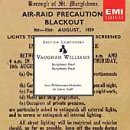
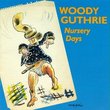
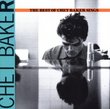
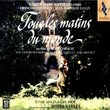
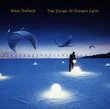

![Seussical [2000 Original Broadway Cast]](https://nationalbookswap.com/cd//m/02/4802/514802.jpg)



